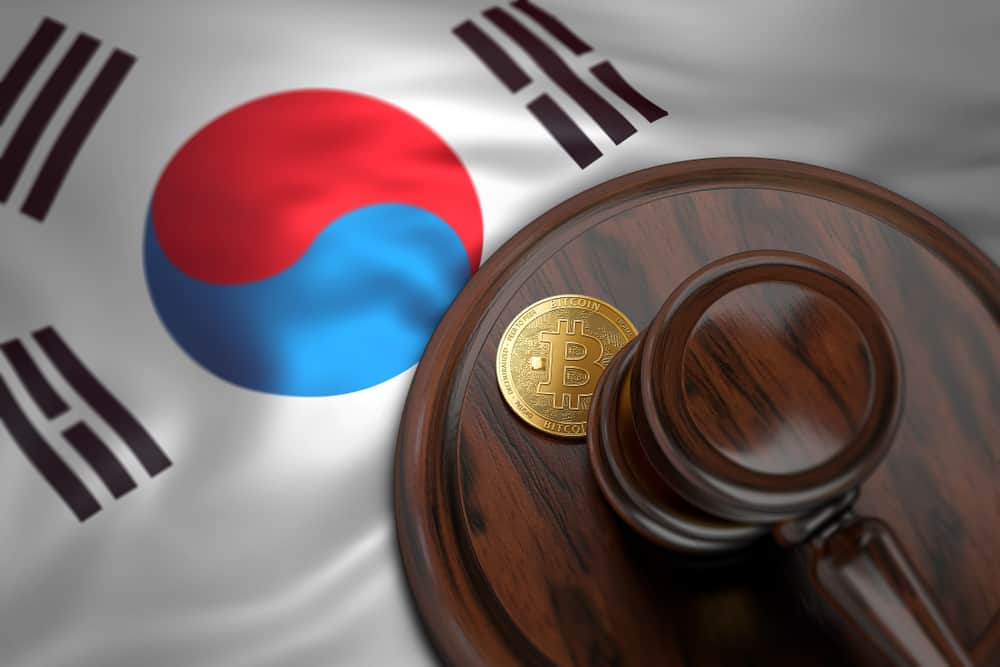South Korea Allegedly Moving Toward Approving Crypto ETFs
11.10.2024 21:30 1 min. read Kosta Gushterov
On October 10, South Korea's Financial Services Commission (FSC) announced the establishment of a Virtual Asset Committee to consider the approval of cryptocurrency exchange-traded funds (ETFs).
This committee will serve as an advisory body providing guidance to the country’s crypto sector. Led by FSC Vice Chairman Soyong Kim, the committee will consist of representatives from relevant government agencies and nine members from the private sector.
The main focus of the committee will be to address critical issues within South Korea’s digital asset sector, including the resolution of corporate accounts.
Currently, South Korea’s Capital Markets Act bans Bitcoin (BTC) and other crypto ETFs, and corporate digital asset accounts are also banned due to anti-money laundering concerns.
In conjunction with this initiative, the FSC founded the Digital Asset Consumer Protection Foundation, a non-profit organization whose idea is to help consumers recover assets from service providers that have gone out of business. The Commission is in the process of reviewing renewal applications from service providers relating to digital assets as many registrations expire in October 2024.

-
1
Bitcoin Could Join Tech Giants in Major Index, Says Standard Chartered
25.03.2025 16:00 2 min. read -
2
Bitcoin Struggles as Institutional Demand Remains Weak
18.03.2025 10:00 1 min. read -
3
Is Bitcoin Ready for a Rebound? Key Indicator Suggests a Breakout
19.03.2025 20:00 1 min. read -
4
Top 3 Factors That Could Fuel Bitcoin’s Next Rally
20.03.2025 9:00 2 min. read -
5
Bitcoin Dominates Crypto Space as Altcoin Rally Fizzles Out
29.03.2025 9:00 2 min. read
Trump Administration Weighs Using Tariffs to Build U.S. Bitcoin Reserve
The Trump administration is exploring the idea of leveraging tariff revenues to build a national Bitcoin reserve, signaling a broader shift in how digital assets could be integrated into U.S. economic policy.
Public Companies Add Over 95,000 BTC in Q1 as Corporate Adoption Accelerates
Public companies ramped up their Bitcoin holdings in early 2025, with total corporate reserves growing by more than 95,000 BTC in the first quarter alone, according to data shared by Bitwise.
Binance Traders Bet Big on XRP Despite Market-Wide Uncertainty
Recent trading data shows a clear tilt toward optimism among Binance users when it comes to XRP.
SEC Delays Decision on Grayscale’s Ethereum Staking ETF Proposal
The U.S. Securities and Exchange Commission (SEC) is taking additional time to evaluate a proposal that would allow Grayscale to integrate Ethereum staking into its spot ETF offerings.
-
1
Bitcoin Could Join Tech Giants in Major Index, Says Standard Chartered
25.03.2025 16:00 2 min. read -
2
Bitcoin Struggles as Institutional Demand Remains Weak
18.03.2025 10:00 1 min. read -
3
Is Bitcoin Ready for a Rebound? Key Indicator Suggests a Breakout
19.03.2025 20:00 1 min. read -
4
Top 3 Factors That Could Fuel Bitcoin’s Next Rally
20.03.2025 9:00 2 min. read -
5
Bitcoin Dominates Crypto Space as Altcoin Rally Fizzles Out
29.03.2025 9:00 2 min. read

